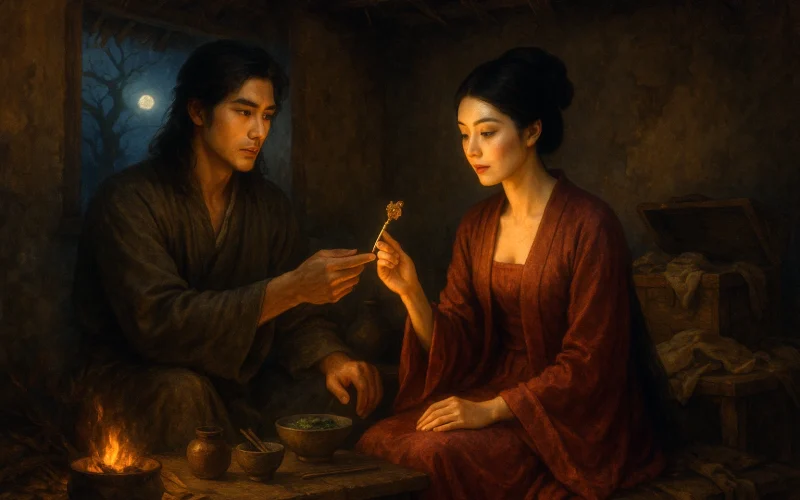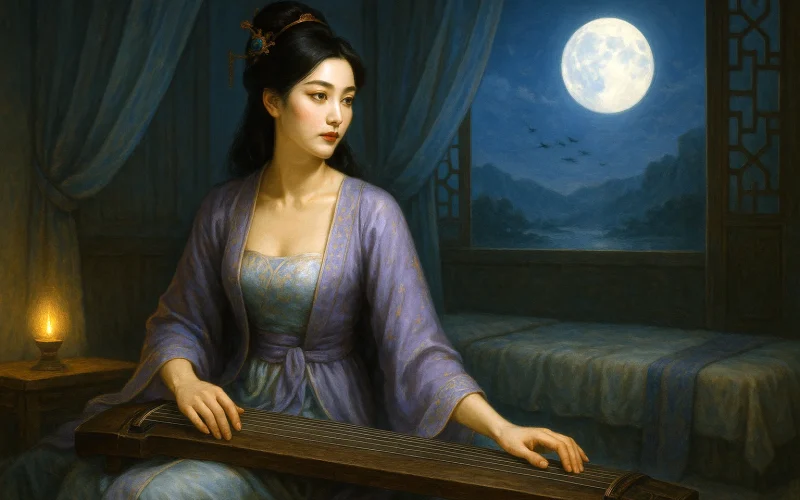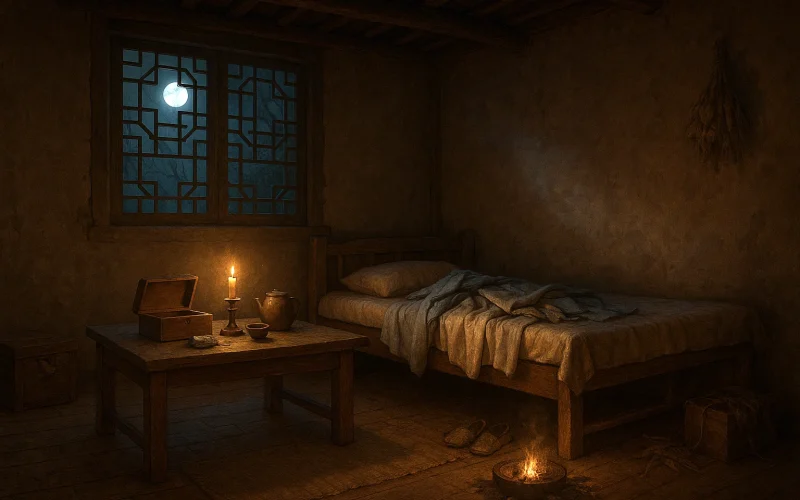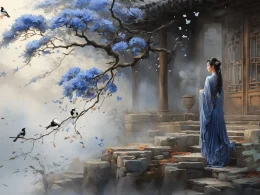O youngest, best-loved daughter of Xie,
Who unluckily married this penniless scholar,
You patched my clothes from your own wicker basket,
And I coaxed off your hairpins of gold, to buy wine with;
For dinner we had to pick wild herbs --
And to use dry locust-leaves for our kindling.
...Today they are paying me a hundred thousand --
And all that I can bring to you is a temple sacrifice.
Original Poem
「遣悲怀 · 其一」
元稹
谢公最小偏怜女,自嫁黔娄百事乖。
顾我无衣搜荩箧,泥他沽酒拔金钗。
野蔬充膳甘长藿,落叶添薪仰古槐。
今日俸钱过十万,与君营奠复营斋。
Interpretation
"An elegy" is one of Yuan Zhen's elegiac poems mourning his wife Wei Cong. Composed about a year after her death while Yuan served as Imperial Censor, the poem recalls their impoverished marital life and profound bond. Wei Cong, youngest daughter of the eminent official Wei Xiaqing, descended from nobility yet endured poverty with her husband. Through these verses, Yuan Zhen expresses profound grief and remembrance.
First Couplet: « 谢公最小偏怜女,自嫁黔娄百事乖。 »
Xiè gōng zuì xiǎo piān lián nǚ, zì jià Qián Lóu bǎi shì guāi.
Like Xie's most doted-upon youngest daughter, You married this penniless scholar—every affair turned hardship.
These lines contrast Wei Cong's privileged origins with her difficult married life. As the cherished daughter of a high-ranking official wedding an impoverished scholar, their union faced continuous struggles, magnifying her extraordinary devotion.
Second Couplet: « 顾我无衣搜荩箧,泥他沽酒拔金钗。 »
Gù wǒ wú yī sōu jìn qiè, nì tā gū jiǔ bá jīn chāi.
Seeing me coatless, you'd scour the wicker trunk; Pestered for wine, you pulled gold hairpins to trade.
This couplet crystallizes Wei Cong's selfless care through tangible acts—searching for clothing, bartering jewelry for wine. Her quiet sacrifices, devoid of complaint, epitomize unconditional spousal love amid poverty.
Third Couplet: « 野蔬充膳甘长藿,落叶添薪仰古槐。 »
Yě shū chōng shàn gān cháng huò, luò yè tiān xīn yǎng gǔ huái.
Wild greens for meals you called sweet as beans; For kindling, fallen leaves from ancient locust trees.
Here, Wei Cong's resilience shines. She finds contentment in meager wild vegetables and gathers dead leaves for fuel, embodying Daoist acceptance of adversity with grace.
Fourth Couplet: « 今日俸钱过十万,与君营奠复营斋。 »
Jīn rì fèng qián guò shí wàn, yǔ jūn yíng diàn fù yíng zhāi.
Now my salary surpasses a hundred thousand— For you, I arrange rituals, sponsor memorial fasts.
The devastating conclusion juxtaposes Yuan's current wealth with irreversible loss. No luxury can be shared with Wei Cong; only posthumous rites remain, amplifying his guilt and sorrow.
Holistic Appreciation
Through poignant recollections of their marital struggles, the poem manifests the poet's profound remembrance of his departed wife. The delicate portrayal of the wife's virtuous character and selfless devotion, interwoven with an intimate depiction of their conjugal bond, suffuses the composition with authentic sentiment. Yuan Zhen's restrained diction articulates boundless conjugal nostalgia, while deliberate contrasts with present circumstances amplify the elegiac pathos. This finely-wrought composition achieves remarkable emotional depth through its unembellished language and masterful use of antithesis, eloquently conveying both the profundity of marital affection and the poet's inconsolable bereavement.
Artistic Merits
The poem distinguishes itself through sophisticated antithetical construction. The inaugural couplet establishes dramatic contrast between Wei Cong's aristocratic lineage and her virtuous embrace of privation, thereby accentuating her moral grandeur. The poet's juxtaposition of past indigence against present affluence serves as a powerful vehicle for expressing inconsolable grief. The concluding distich reinforces this thematic tension through renewed contrast between bygone hardships and current prosperity.
Notwithstanding strict adherence to regulated verse form, the language maintains extraordinary naturalness and conversational fluency. This technique of "revealing profundity through simplicity" generates exceptional emotive resonance. The poet's synthesis of meticulous narrative detail with profound emotional undercurrents elevates the work to rare artistic excellence.
Insights
The poem demonstrates how unvarnished expression, when grounded in authentic experience, surpasses rhetorical ornamentation in emotional impact. Through vivid recollections of shared adversity and his wife's unwavering support, the poet articulates both the depth of conjugal devotion and the tragedy of unrealized futures. This artistic achievement reminds us that life's most ordinary moments often contain its deepest emotional truths, and that true literary greatness resides in giving voice to these universal human experiences with clarity and integrity.
Poem translator
Kiang Kanghu
About the poet
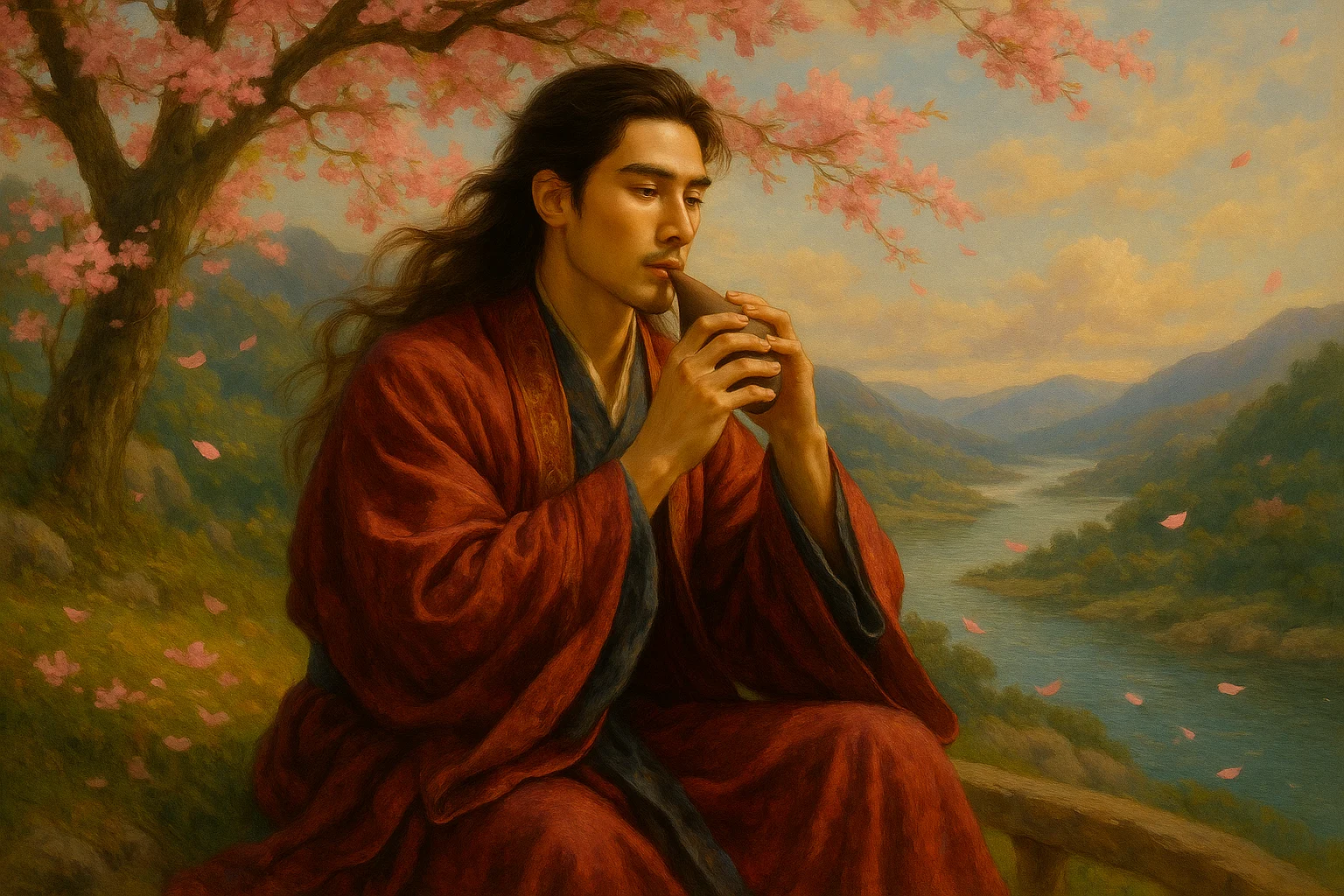
Yuan Zhen (元稹), 779 - 831 A.D., was a native of Luoyang, Henan Province, who was poor in his early years, but later became an official and finally died of a violent illness. He was friendly with Bai Juyi and often sang with him, and was known as “Yuan Bai”.






